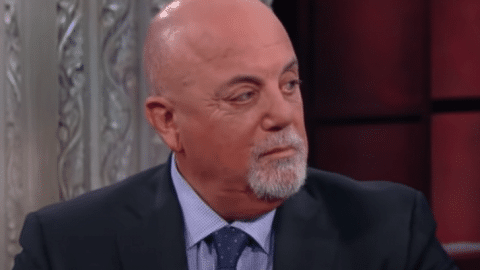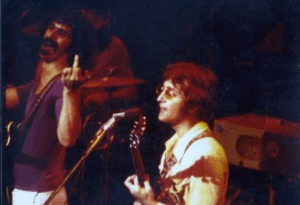Billy Joel Explains Why He Doesn’t Like His Own Voice

via The Late Show with Stephen Colbert / YouTube
Billy Joel is one of the most celebrated singer-songwriters in music history, yet he has long carried a surprising opinion about his own voice: he doesn’t like it. While fans recognize his signature tone instantly, Joel himself has remained critical of his vocal abilities throughout his career. His true passion has always been songwriting, which he sees as the core of his artistry.
Despite playing sold-out shows around the globe, Joel has consistently downplayed his singing talent. To him, singing is a means to deliver the music, not the highlight of it. He often views his voice as a vehicle rather than the destination, a practical element necessary to bring his songs to life.
This mindset hasn’t limited his creative output—in fact, it’s arguably enriched it. By prioritizing the story, the melody, and the emotional content of his songs over vocal performance, Joel has crafted a catalog that resonates far beyond technical singing ability. His humility, in this case, has contributed to his unique charm.
View this post on Instagram
Hearing Other Voices in His Head
One of Joel’s most interesting creative habits involves imagining his songs being sung by artists he admires. This distancing strategy helps him detach from his own voice and instead focus on how the music might sound through someone else’s vocal lens. It’s a technique that brings new depth and character to his songwriting.
In a 2016 SiriusXM interview, Joel confessed that he never saw himself as a stylist or someone known for vocal finesse. Instead, he embraces the idea of writing music that could be interpreted by any voice—something he’s practiced for decades. This has freed him creatively, allowing him to channel various moods and personas through his songs.
A perfect example is “Until The Night” from the 1978 album 52nd Street. Joel composed it with The Righteous Brothers in mind, imagining their rich, soulful voices bringing it to life. This approach turned the song into a nostalgic homage, even though it was performed by Joel himself.
The Influence of Ray Charles and Other Icons
Billy Joel’s admiration for other musicians often shapes the way he hears his own work. One artist who had a profound influence on him is Ray Charles. Joel has openly shared that when writing songs like “New York State of Mind,” he imagined Charles’s voice interpreting the lyrics.
This idea isn’t limited to a single song. In a 2022 CNN interview, Joel revealed that he frequently envisions someone else behind the microphone—anyone but himself. This mental exercise not only motivates him but also helps channel the emotion and style of legendary performers into his compositions.
Although he might not feel confident about his own singing, Joel’s ability to inhabit different musical voices has become one of his strongest creative assets. The result is a body of work that feels timeless, multifaceted, and deeply influenced by the greats who came before him.
Coming to Terms with His Voice
Over time, Billy Joel’s relationship with his voice has shifted. While he still doesn’t consider himself a singer in the traditional sense, he has found a greater appreciation for his sound as the years have gone by. This evolution reflects a broader journey of self-acceptance and artistic maturity.
In a candid conversation with Howard Stern during a SiriusXM Town Hall, Joel remarked that he likes his voice more now than he used to. This subtle change in perspective shows that even after decades in the spotlight, he continues to evolve and reflect on his role as an artist.
Rather than chasing perfection, Joel has embraced the idea that imperfection can be powerful. His voice, unique and unmistakable, has become a symbol of authenticity—a rare quality that fans cherish, even if the man behind the microphone remains his own toughest critic.
View this post on Instagram
Legacy Beyond the Microphone
Despite his personal reservations, Billy Joel’s voice has left a lasting impression on the music world. From stadium anthems to piano ballads, his vocal delivery has connected with millions, even if he himself struggles to hear what makes it special. That disconnect, in a way, only enhances the mystique.
What truly defines Joel’s legacy isn’t how he sings, but what he sings about. His lyrics tell stories of love, longing, hope, and heartache, capturing the human experience with clarity and grace. The voice may be secondary to him, but the emotional impact is anything but.
In the end, Billy Joel proves that artistry isn’t about technical perfection—it’s about sincerity. Whether or not he enjoys the sound of his own voice, he has used it to communicate something real, and that’s what makes his music unforgettable.













